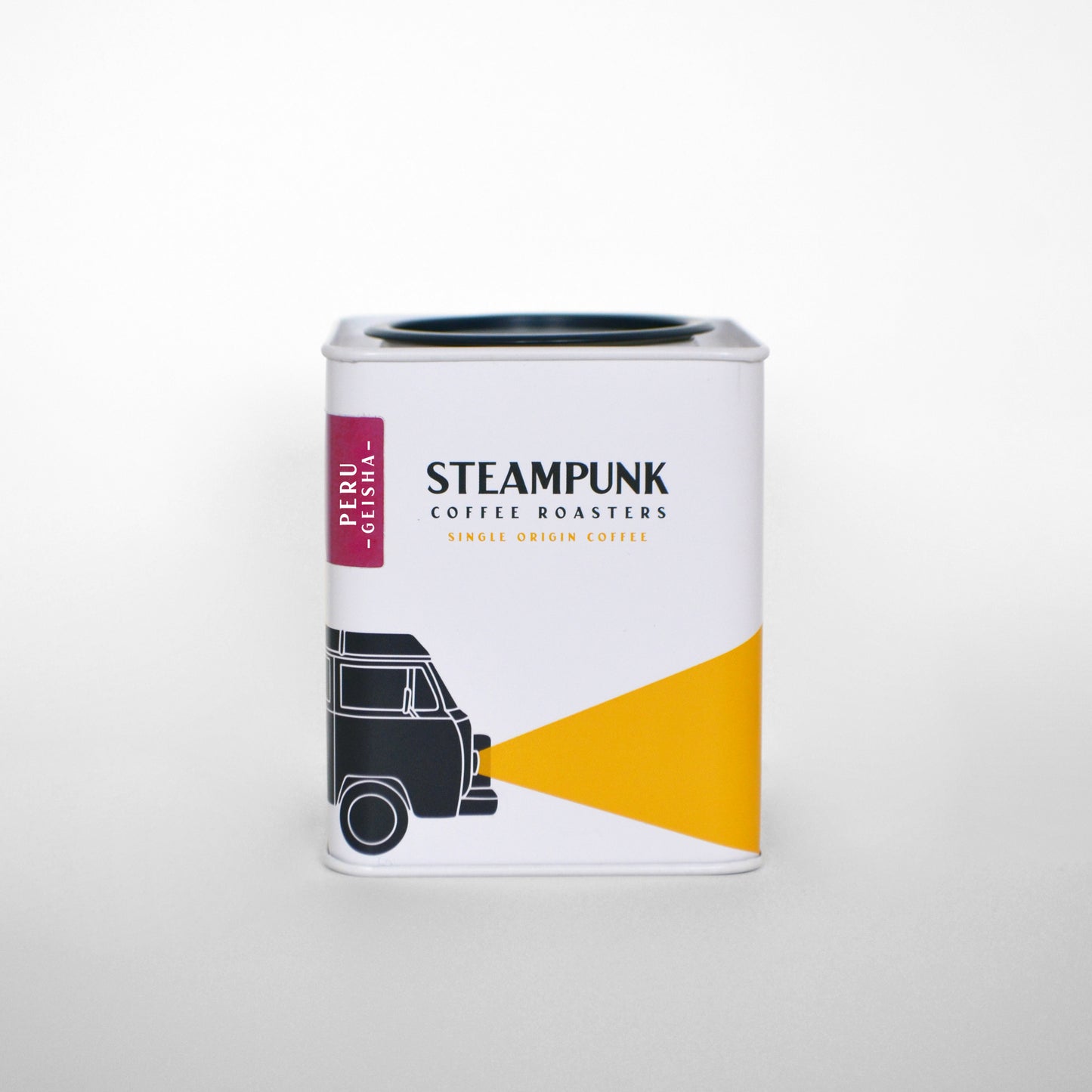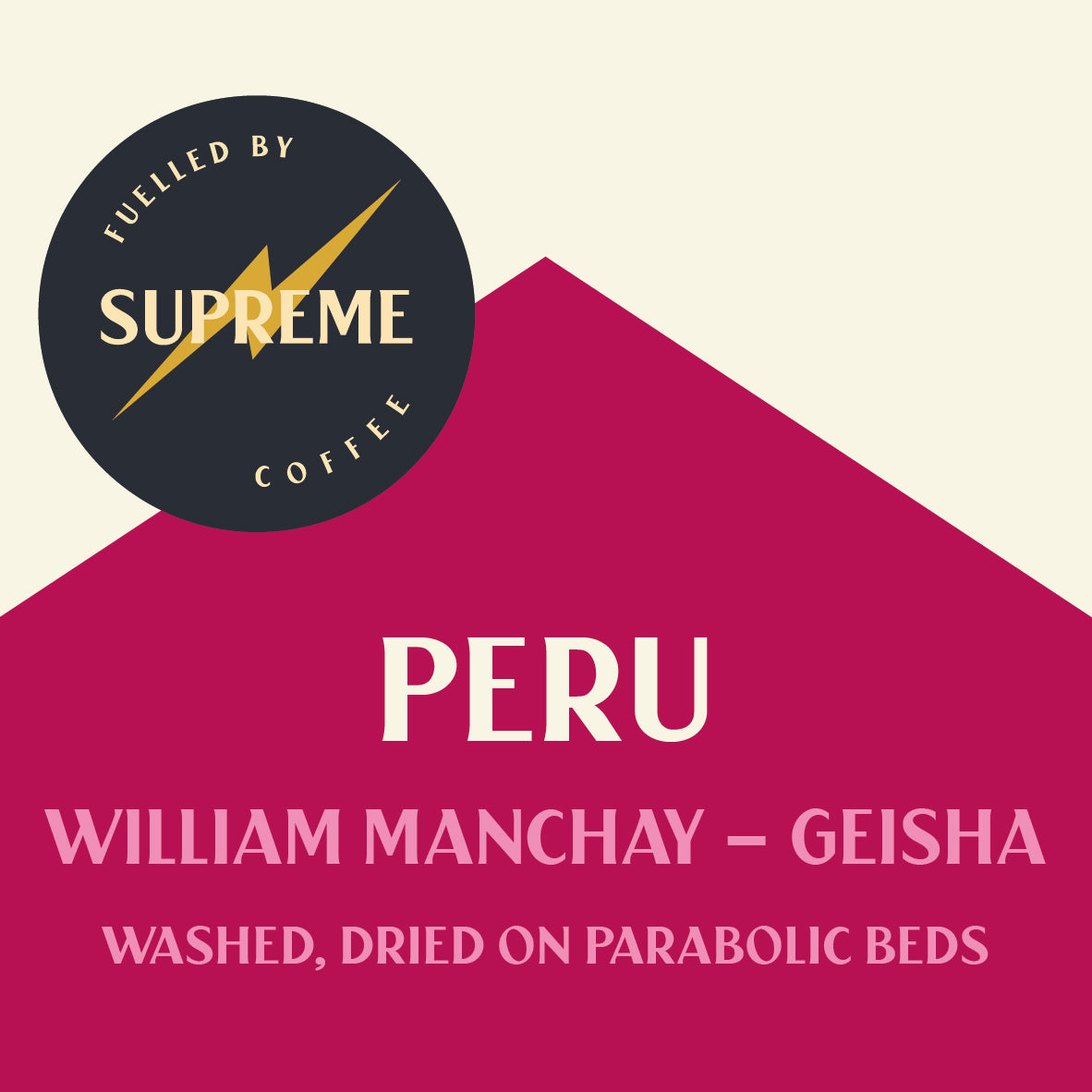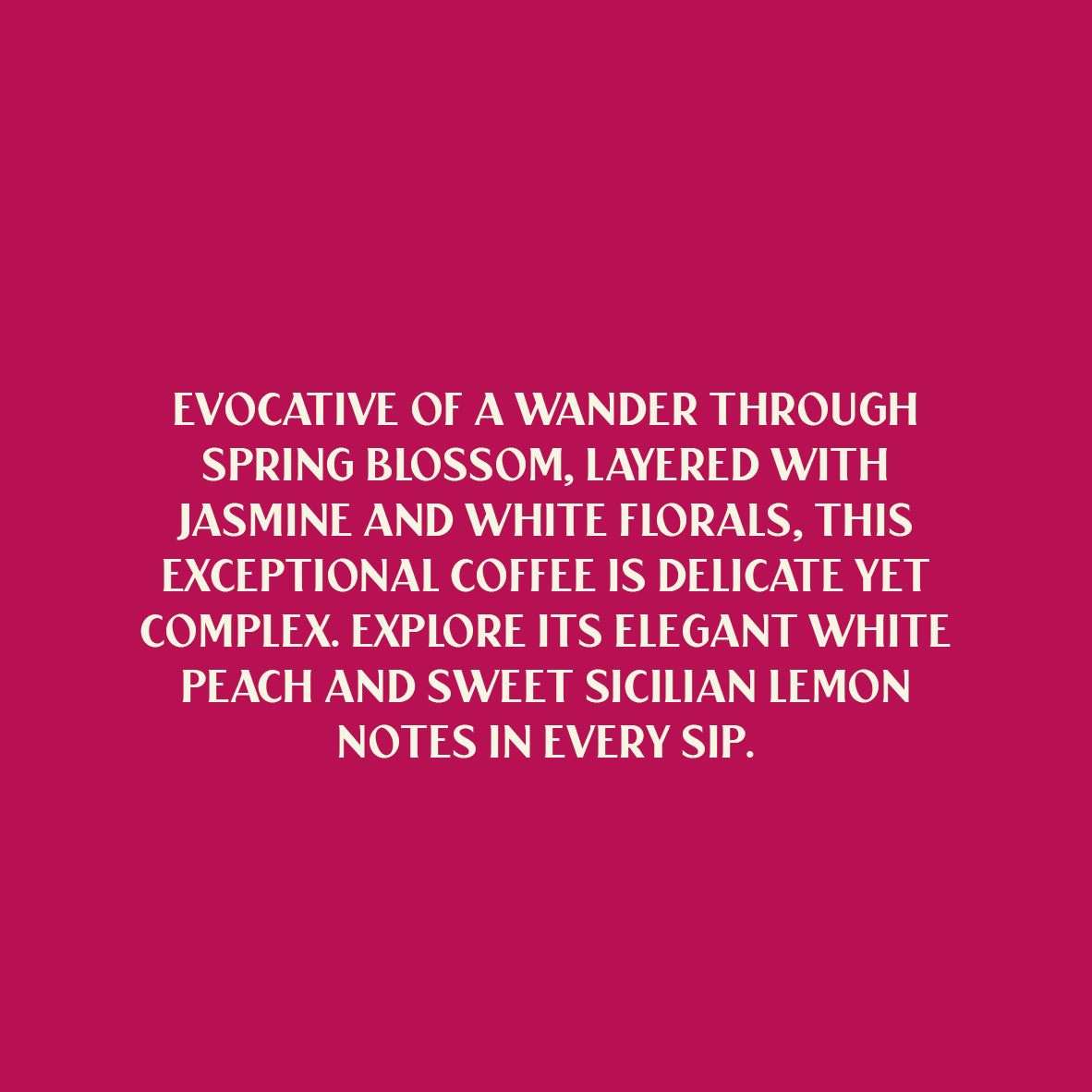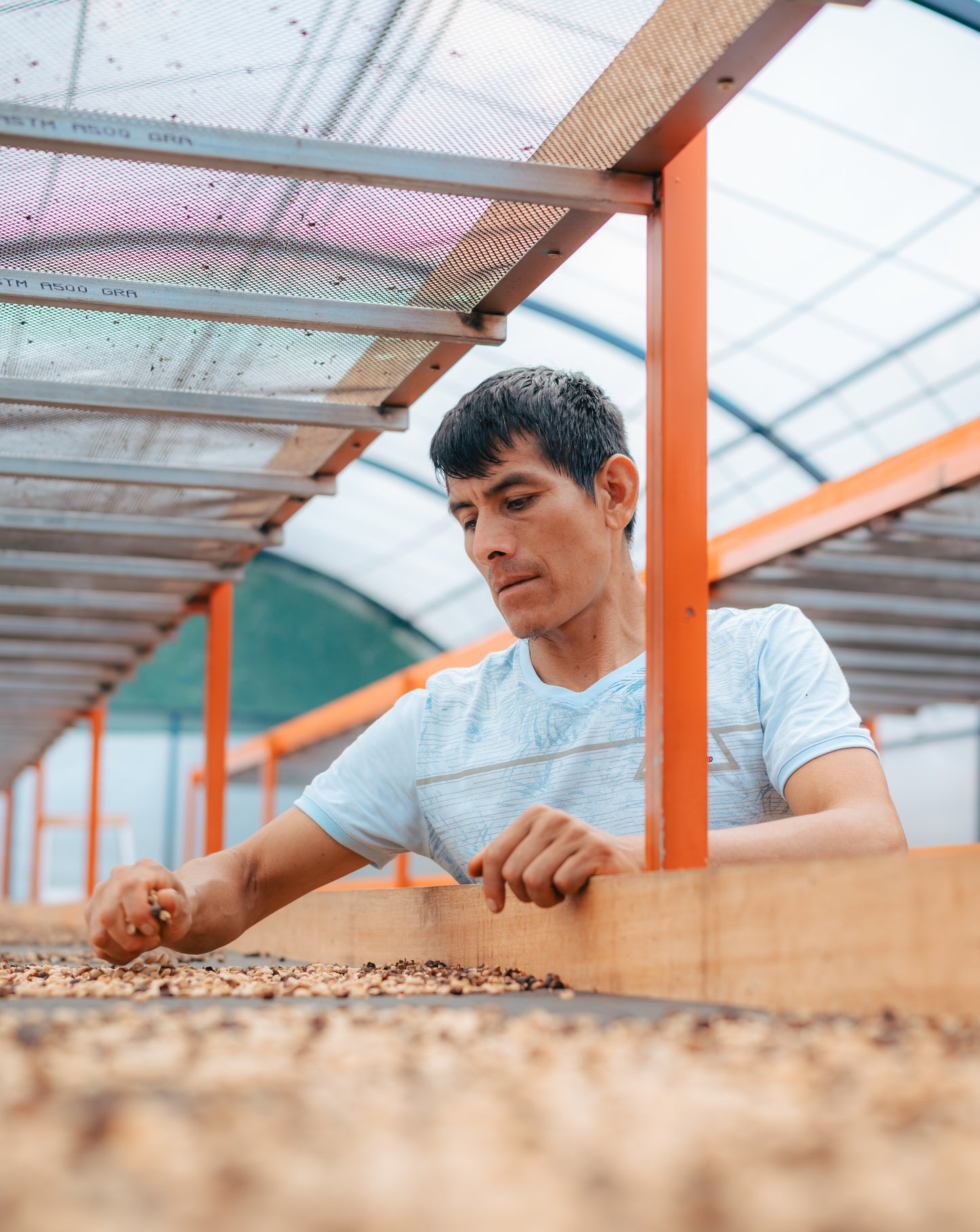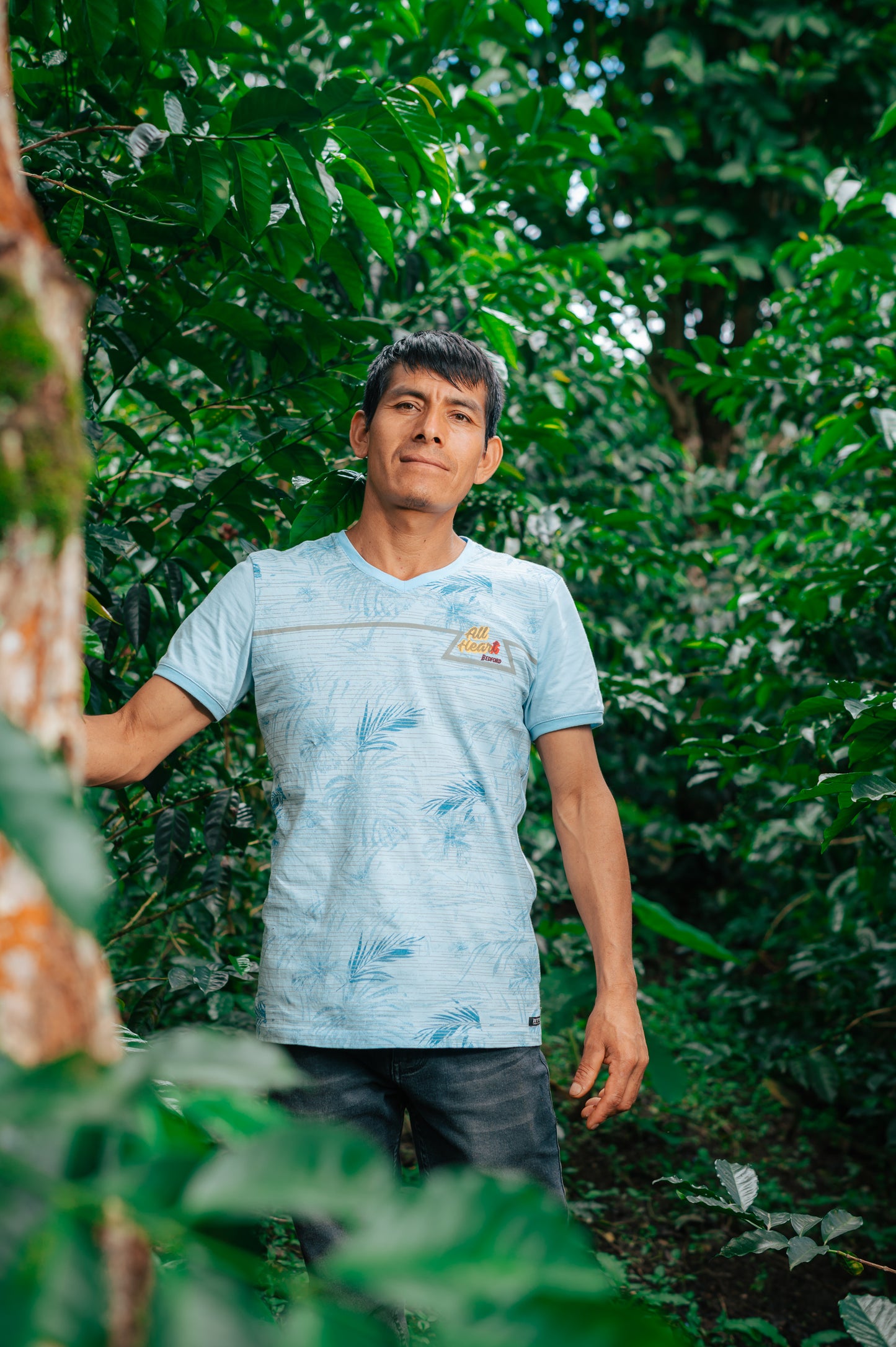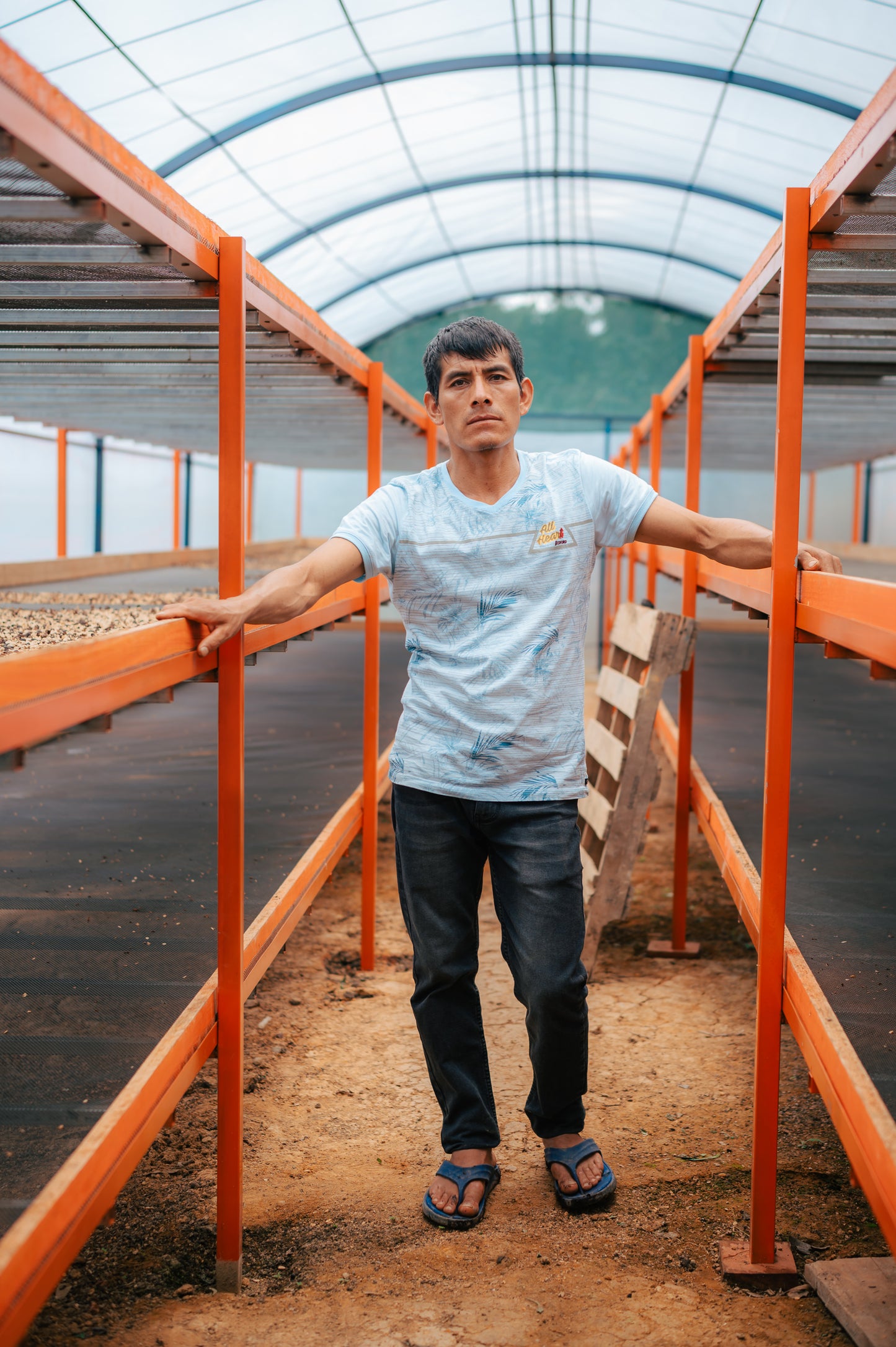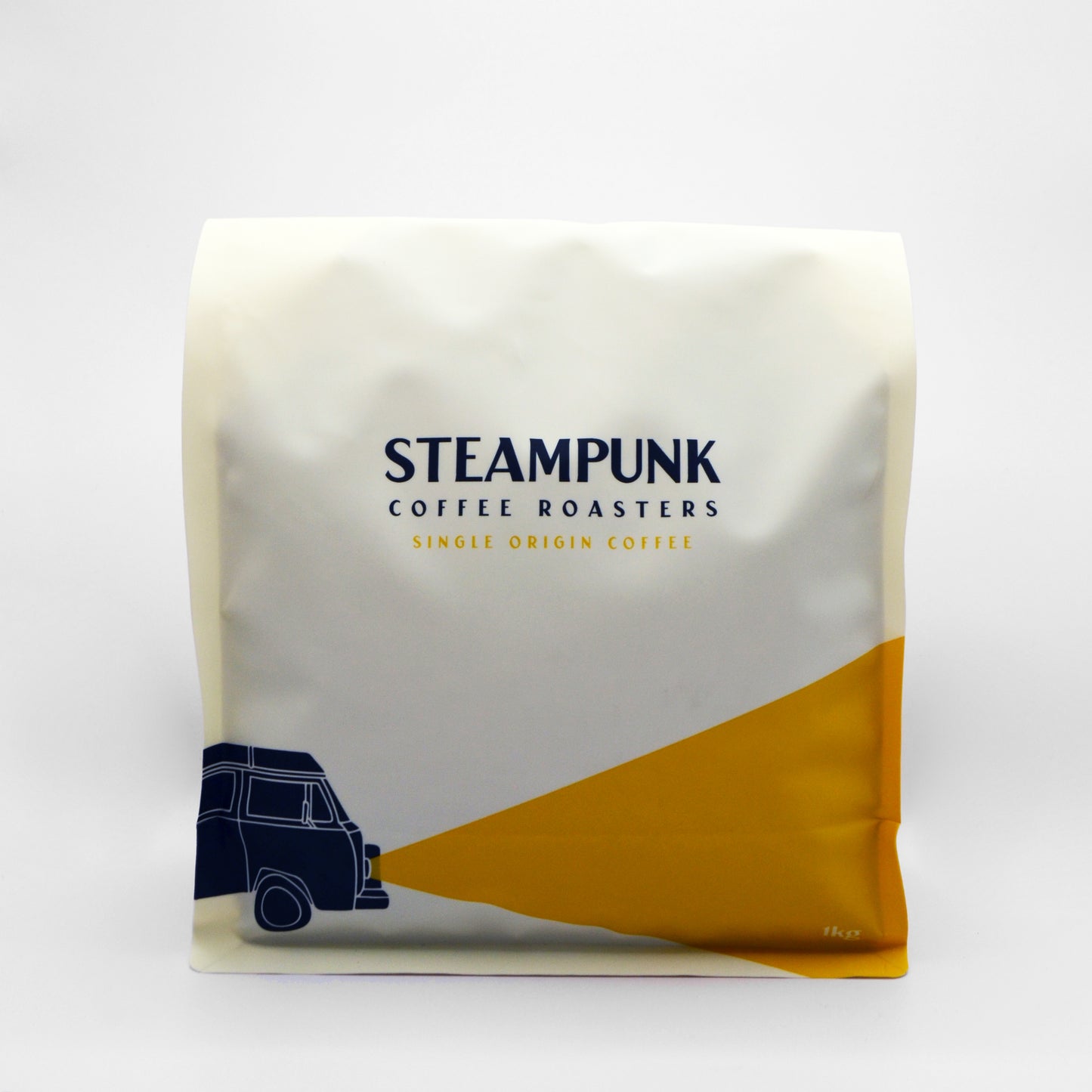SUPREME COFFEE : PERU WILLIAM MANCHAY - GEISHA
SUPREME COFFEE : PERU WILLIAM MANCHAY - GEISHA
Recommended Retail Price: £20/200g
Tasting Notes: Evocative of a wander through spring blossom, layered with jasmine and white florals, this exceptional coffee is delicate yet complex. Explore its elegant white peach and sweet Sicilian lemon notes in every sip.
Region: Chirinos, Cajamarca
Altitude: 1,750 - 1,800 m.a.s.l.
Variety: Geisha
Processing: Washed, dried on parabolic beds
This lot was produced by William Manchay on his 3-hectare farm, La Flor de la Palma, in Chirinos, Cajamarca. William moved to Chirinos as a young man starting out in life. Like many people at that time migrating from the high mountain areas where land is expensive and crops are harder to grow, William moved with the goal of buying farmland. He started out working on coffee farms in the area before saving up enough money to buy his own, which he’s since expanded and improved. The main varieties he grows are Caturra and Geisha, which he chose for their cup quality and relatively good production in this altitude. William has been planting more Geisha in recent years, as it has responded well to the microclimate in La Palma and is more profitable than other varieties.
William dreams of winning a national quality competition. He has placed second and third in the local competition in Chirinos, which is already very competitive, with many of the best coffees in Peru coming from this little town. With some refinement to the processing and drying of his Geisha, William’s coffee has a good chance of placing in the national competition this coming year.
This is a classic washed process coffee. After picking, the cherries are rinsed in spring water to clean them and to reduce the microbial load and so prolong fermentation. Unripe cherries float when submerged in water, hence their name, “floaters.” Once these floaters are removed the good cherries are drained, pulped and placed in ceramic tanks to ferment. After around 36 hours, depending on the ambient temperature, the coffee is fully fermented and the mucilage can easily be removed with some friction. At this stage, William washes the coffee again, removing the mucilage with fresh spring water. Once all the fruit is removed from the beans the coffee is pre-dried on raised beds in the sunshine. Pre-drying acts to remove the surface moisture and prevents spoilage or excess humidity in the covered drying area. After a few hours, the coffee is ready to be moved to the covered drying area, also known as “parabolic” because of the shape the hoops and plastic tarpaulins create over the raised beds. The coffee remains there for around 20 days, until it’s dried to a moisture content of 11 percent. Then it’s bagged up and rested for a period of two weeks in the farm before being delivered to the importer’s warehouse in Jaén.
This coffee comes to us through the small importer Chacra, who is newly working in the UK and focused on top-quality Peruvian coffees. This harvest we secured two of their offerings: this lot of Geisha variety, along with an inoculated, honey process Tabi variety lot. Chacra Coffee is the husband and wife team of Simon Brown and Merlith Cruz. They focus on exceptional varieties like Geisha and Wush Wush, along with innovative processing methods. They established Chacra, a Quechua word meaning “earth planted with seeds,” after they bought a parcel of land in Cajamarca to plant with coffee. While developing their farm, Las Etiopes, they also worked to build relationships with neighbouring producers. Eventually, Chacra began exporting the coffee they grew on Las Etiopes as well as lots grown by partner producers, selling to other importers in the UK. In the last year or so they’ve taken another step, importing these coffees themselves. Talking to Simon, it’s clear his experience as a coffee grower informs how he does things as an exporter/importer. He has personal relationships with the producers who grow the coffee he sells. We’re lucky to be some of their first customers in the UK.
Share
